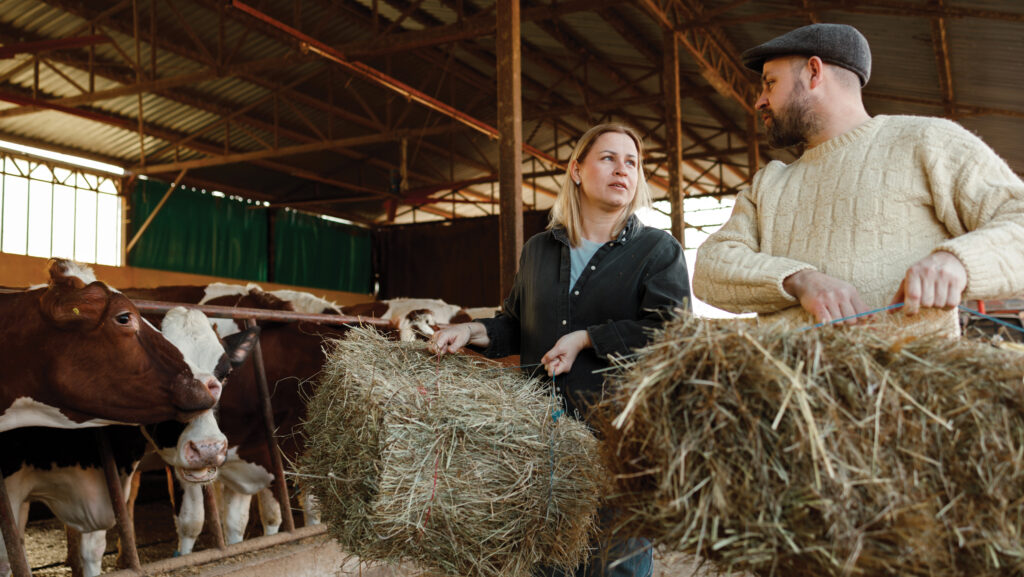How careful planning can reduce the risk of a challenge to your will
 © iStockphoto
© iStockphoto The term contentious probate covers a range of claims that may follow a death.
These can include direct challenges to the validity of a will, a claim against an estate to make reasonable financial provision for someone, or claims about the ownership of assets.
“One of the main issues we see is a will being drafted without looking at the farming reality, in terms of diversifications and without looking at the partnership agreement and how things are structured,” says Johnny Coulthard, contentious probate partner at Burnetts Solicitors.
See also: Avoiding the pitfalls when making a will
This can give rise to assets being gifted that the person making the will doesn’t even own, and often too little thought is given to the whole picture – the business and the family, and how they interact.
Sometimes there is no will. But more often the problem is an outdated or poorly drafted will.
Once someone has got round to making a will, it is common for it to be put in a drawer and left, but wills should be reviewed regularly, suggests Johnny, who specialises in advising on contentious agricultural estates.
Common types of will challenges include:
Promises – for example, promises made to adult children that they will inherit the family farm or other assets, only to find out, usually after a death, that the promise has been broken in a will.
If the person expecting to inherit has relied on the promise to their detriment, for example, working long hours on the farm for little or no pay, they may be able to pursue a claim under a legal doctrine known as proprietary estoppel, even if the farm has been left to someone else.
“We see a steady stream of these claims,” says Johnny.
Invalid wills – disputes concerning farming wills often arise from concerns about the capacity of the testator, or that they may have been unduly influenced.
These are the most common causes of challenges to farming wills.
“People often make changes to their will at a later stage in life, and perhaps when their health is in decline.
“This can make them vulnerable to undue influence or give rise to concerns about their capacity to make the will,” says Johnny.
However, safeguards can be put in place to record both that the testator has capacity and that they are acting free from any undue influence.
A will may also be invalid because it has not been properly executed, through incorrect witnessing (will signatures should be witnessed by two people who are not beneficiaries), or sometimes not even signed by the testator.
These issues tend to arise most commonly when homemade or pre-printed wills have been used.
Challenges can also be made under “knowledge and approval”, which questions whether someone knows they are signing a will and is aware of its contents.
Sometimes there is an overlap between this and testamentary capacity.
A further ground is that of “fraudulent calumny”. This is where the mind of the testator has been poisoned against a beneficiary in order to get them removed from the will.
Construction challenges
The complexity of farming businesses and how they develop over time, sometimes rapidly in the case of diversified businesses, means that an original intention in a will to gift “the farm” can become outdated, says Johnny.
It can become a matter of dispute as to what constitutes “the farm” or other assets.
These are known as “construction” claims, where there is a valid will but an asset has not been sufficiently described and there is ambiguity over its interpretation.
It is also important to guard against certain assets falling by default into the residue of the estate for wider distribution, such as the farm machinery, which is essential to the viability of “the farm”.
Proving undue influence
“It’s quite a high threshold to prove undue influence, and the court will want to see evidence,” says Johnny.
“The court will often look at independent evidence from people who knew the deceased, but who are not a beneficiary under the will.
“The court will attach a lot of weight to that, particularly professional evidence from land agents, accountants and other advisers who knew the dynamic.
“Also, any contemporaneous documents from the time that these decisions were being made.
Medical evidence can be brought in (also for testamentary capacity questions) to see if there was any sort of vulnerability (making someone susceptible to undue influence) or if anything was mentioned to the doctor about any concerns.
“If you can show that the evidence is pointing in one direction, but the will says something else, that’s what we’re trying to demonstrate.”
Partnership issues
If farmland and buildings are held for the benefit of a partnership, they may not pass directly through the terms of the legal owner’s will.
Instead, it can be the value of the deceased’s interest in the partnership that will pass under the will.
“This can be a particular problem if there is no partnership agreement.
“The main point of dispute is usually whether an asset, such as the farm, is a partnership asset or whether it is owned individually outside of the partnership, with the partnership simply having a right to occupy the farm.”
If there is no partnership agreement, then the terms of the Partnership Act 1890 will apply, which can dissolve the partnership on the death of a partner, with the shares distributed evenly between all partners.

Inheritance Act claims
If there are children in financial need, or people financially dependent on the deceased, and a will does not make sufficient provision for them, they may be able to claim reasonable financial provision from an estate under the Inheritance (Provision for Family and Dependants) Act 1975.
Such claims can be made by a spouse or civil partner, although there is no requirement for them to show they have a financial need or dependency to bring a claim, points out Johnny, adding that spouses are sometimes not included in a will, but that their claims are generally strong.
Both adult and minor children have to show a financial need to be maintained by the estate to bring a claim.
“In adult children claims, the courts will often consider the moral aspect of a claim. For example, in a situation where someone inherits a farm or other substantial assets, but whose sibling has not been reasonably provided for.
“That sibling may have earned less than otherwise because they have been providing care to the deceased.
“They may have a claim as a result of their precarious financial position, and you see that kind of claim coming forward in a farming context.”
In such cases, bank statements, incomings and outgoings, along with accommodation needs, would be considered.
Inheritance Act claims must be made within six months of the grant of probate being issued.
The court can award lump sum payments, the transfer of property, the granting of a life interest in a property, or periodical payments.
When a lawyer is instructed to prepare a will, they should keep a contemporaneous record of the key decisions made and the justification for these.
“This can seriously mitigate the risk of a future dispute and can be crucial evidence if there is any future dispute about the deceased’s intention,” says Johnny.
“Lawyer’s meeting notes are often used in court or, in the event of a potential dispute, simply to support a party’s position.
“The risk of a dispute arising can be reduced by good planning, including, for example, arranging a capacity assessment or ensuring that those in financial need are left with reasonable provision.”
How to guard against will challenges
- Make a valid will and review it regularly.
- A will should reflect current succession plans and any promises made, and provide for anyone who may have a financial claim against an estate.
- A written and up-to-date partnership agreement should record how the farming assets are owned now and what is to happen on death, also how the profit distribution works.
- Make sure the will and partnership agreement agree and clearly set out what should happen to someone’s interest in the partnership when they die.
What happens if there is a dispute?
It is important to get advice as soon as possible as steps often have to be taken quickly to ensure assets are not disposed of.
A resolution with the relevant parties may be possible – while some will disputes go to trial, most are settled out of court.
“You’ve got to engage in the pre-action protocol; this puts the emphasis on parties to try to settle claims without the need to involve the court.
“It is important to enter into correspondence and explore if a resolution is possible before court proceedings are issued.
“However, if proceedings are issued, you should also consider resolution during the litigation process.
“There is always litigation risk, and the outcome in these cases can be unpredictable. There are the costs on both sides, and a lot of people think the costs will come out of the estate.
“There are specific and fairly narrow circumstances where this is the case, but in the vast majority of cases, the loser pays the winner’s reasonable costs.”
Provided all beneficiaries agree, a deed of variation can often be made, altering the terms of a will.
This can be done up to two years after a death and is not uncommon in farming situations, especially as there may also be tax advantages to changes.
